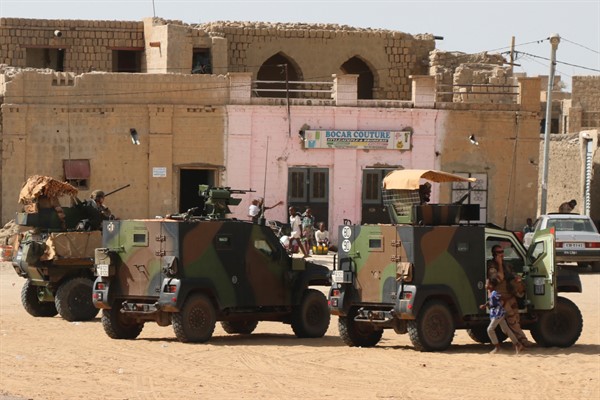As Europeans wait with bated breath to see whether Russian President Vladimir Putin authorizes an invasion of Ukraine, another military conflict is causing apprehension in Paris and Brussels, this one in Mali.
Tensions between Paris and the military junta currently running the West African country have been simmering for months. But they reached a boil this week, when the junta expelled the French ambassador to Bamako. Paris now says it will consult with its European partners engaged in the European Union’s Takuba Task Force, which was launched by Brussels to compensate for the gradual drawdown of French troops from its Operation Barkhane mission in the Sahel region. Together they will decide by mid-February whether the EU mission should continue.
To get a better sense of what the potential termination of the Takuba mission means not just for France but for the EU more broadly, we have to go back to March 2020. That’s when France, after years of applying considerable pressure, finally succeeded in convincing its EU partners to join Paris’ counterterrorism mission fighting Islamist militants in the Sahel region of West Africa, which consists mostly of countries that were former French colonies. Former French President Francois Hollande had deepened France’s involvement in regional stabilization missions , including a yearlong military intervention in Mali beginning in 2013. His successor, Emmanuel Macron, has sought to “Europeanize” these missions, in order to reduce the burden on the French military but also to demonstrate European strategic autonomy in action. Macron has long argued that such European-led missions outside the context of NATO can and should effectively respond to the EU’s security priorities.

